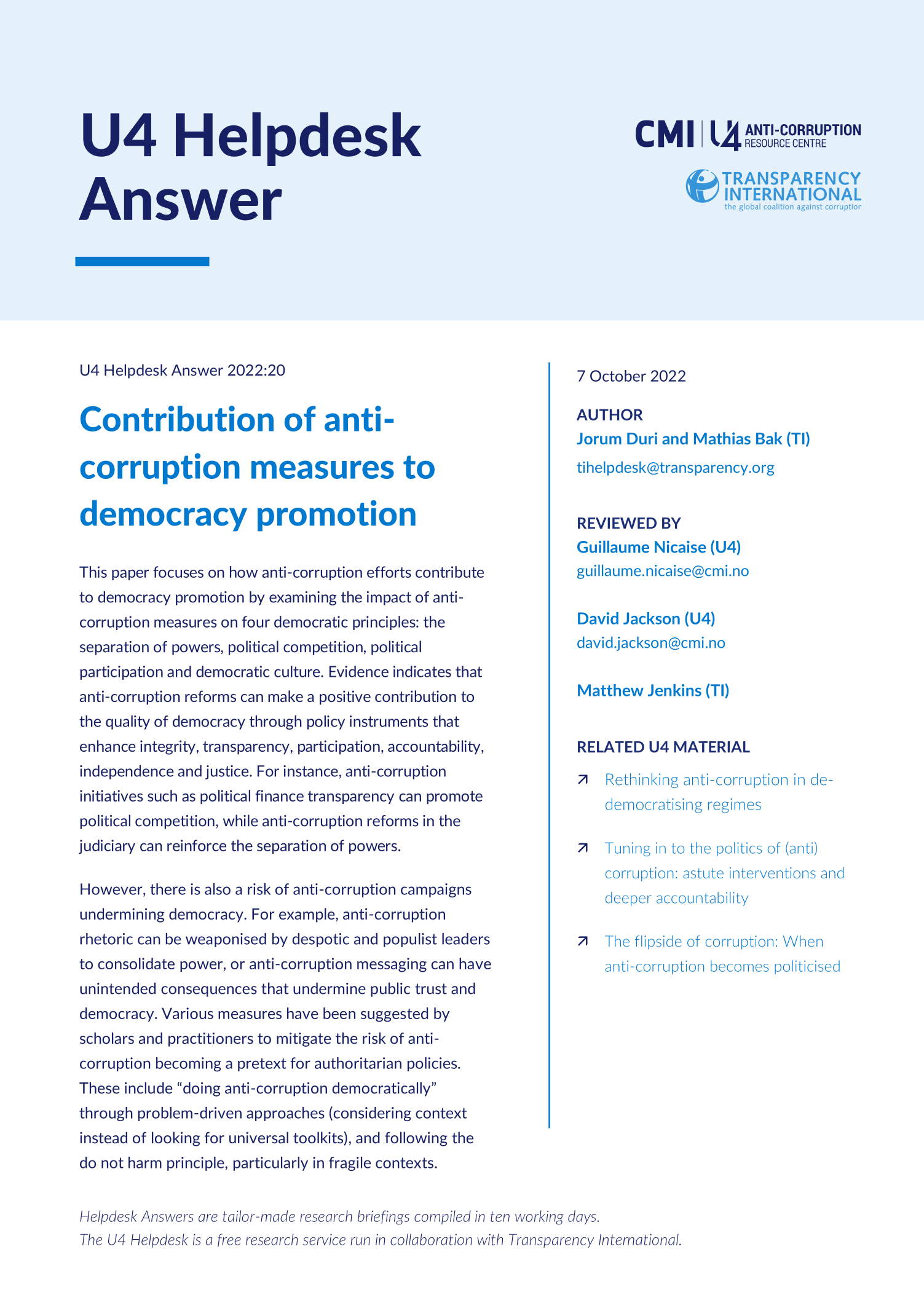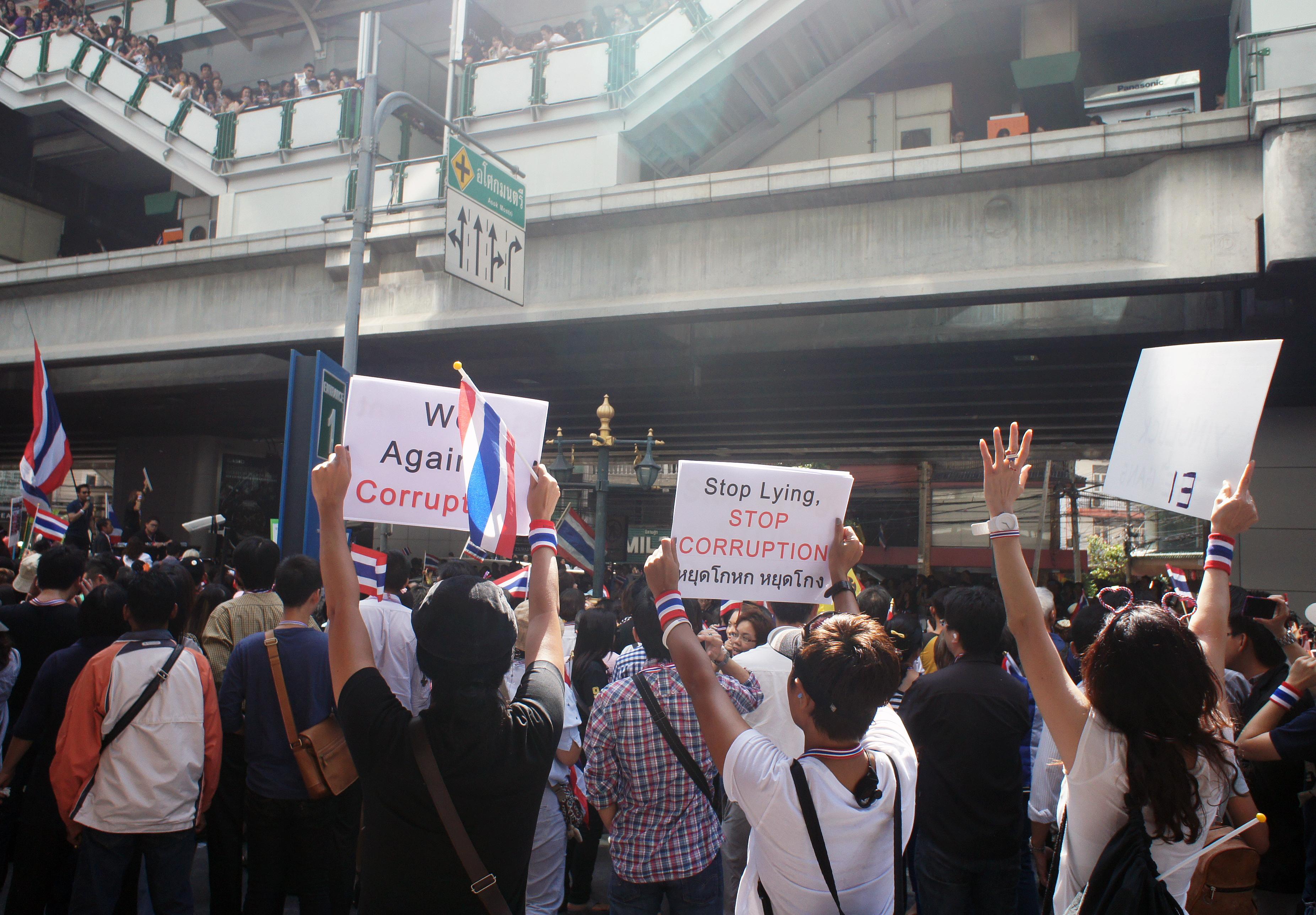Main points
- Corruption is understood as a driver of democratic decline, lowering public trust in government, prejudicing sound policymaking to favour private interests, as well as leading to the capture of accountability mechanisms and oversight bodies.
- Anti-corruption reforms in the judiciary and parliamentary development programmes are examples of how anti-corruption may deepen the principle of separation of power.
- Anti-corruption initiatives such as political finance transparency and integrity safeguards in elections promote political competition.
- Risks of anti-corruption to undermine democracy include its weaponisation by despotic and populist leaders to consolidate power, as well as unintended consequences of anti-corruption messages that undermine democratic values.



